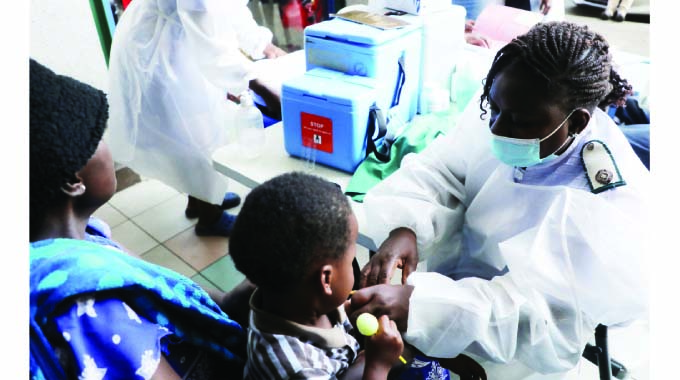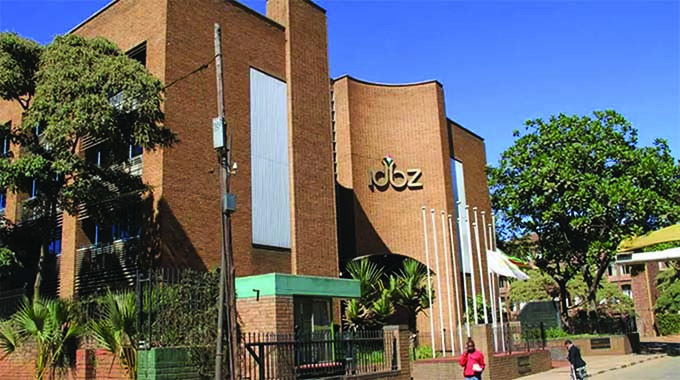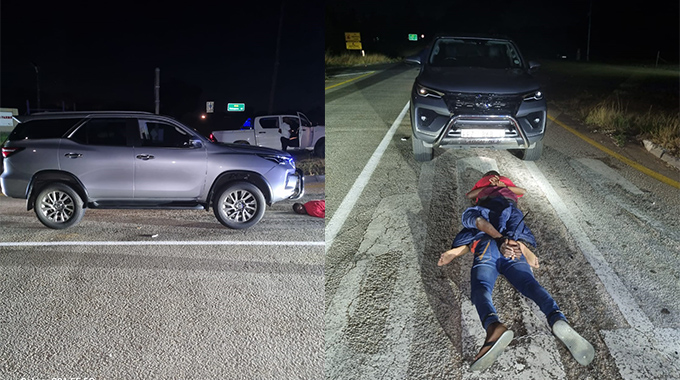Measles immunisation blitz relief as death toll nears 700

Bongani Ndlovu/Canditar Chapanduka, Chronicle Reporters
PARENTS have welcomed the ongoing measles immunisation blitz as evidenced by the high numbers of parents bringing their children to immunisation points in Bulawayo amid reports that the disease has killed nearly 700 children across the country since April when the measles outbreak was reported.
The immunisation blitz that started on August 29 and ends on Saturday, targets more than two million children aged between six months and five years. During the blitz, people can also get vaccinated for Covid-19.

Vaccine
Government has urged religious sects that usually shun such exercises to bring their children for vaccination to save lives.
Many residents said they were aware of the national programme and some of them said they got to know about it when they visited clinics for other health services.
According to an update by the Ministry of Health and Childcare, 623 810 children between the ages of six to 59 months have been immunised for measles which is 26,9 percent of the target population of 2 317 522. So far, a total of 370 699 have been administered with Vitamin A .
Measles is an acute viral respiratory illness commonly found in children but can be easily be prevented if children are immunised.
Some of its primary symptoms are fever, malaise, cough, runny nose, inflamed eyes, sore throat and a red blotchy skin rash which usually appears about 14 days after a person is exposed. The disease spreads through the air by respiratory droplets produced from coughing or sneezing.
There is no known treatment for an established measles infection but over-the-counter fever reducers or Vitamin A supplements may help with symptoms hence vaccines are used to prevent spread.
On 10 April this year, Mutasa District in Manicaland province reported a measles outbreak and since then 6 291 cases, 4 459 recoveries and 698 deaths have been recorded across the country. Manicaland Province has the highest number of deaths at 347 which is about 50 percent of the total deaths so far recorded.
Bulawayo which targets to immunise 90 960 children, has so far recorded 22 deaths.
Health teams are stationed at council clinics while others are using mobile immunization booths.
The City Health Department is also conducting door-to-door campaigns to urge parents to bring their children to immunisation centres in both the low and high density suburbs.
A visit by a Chronicle news crew revealed that many mothers are bringing their children for immunisation.
Ms Lois Ngwenya who was at the Luveve Clinic said she had brought her nine-month-old daughter for immunisation.
“The queue is not that long and the services here are fast. I came with my daughter because I want her protected from measles,” said Ms Ngwenya.
At same the clinic was Ms Sharon Mathuthu who was with her seven-month-old son who was waiting to be immunised.
She commended the Ministry of Health and Child Care for carrying out the immunisation programme.

Ministry of Health and Child Care
“Children are sensitive and they need to be taken care of especially when it comes to their health. They need extra care, especially with this deadly disease, measles. When I heard about the campaign, I quickly brought my son here,” said Ms Mathuthu.
At Pelandaba Clinic, only a few mothers were waiting for their turn to have their children immunised.
Ms Linda Chanyau who was with her 11-month-old baby, said it was crucial to prevent measles hence she brought her baby.
Miss Rudo Moyo said she had to absent herself from work so she could take her child for immunisation.
At Cowdray Park, mothers who had brought their children for immunisation bemoaned the lack of information about the programme.
Ms Bekezela Kunene who had brought her four-year-old son to Cowdray Park Clinic said she only heard from a friend who had visited her.
“There were no fliers distributed regarding this programme as what they normally do when there is such a national programme. I heard of this programme from someone who visited me at home,” said Ms Kunene.
She said there was need for Government and the council’s health department to disseminate such information and people need to be told that the measles outbreak has killed more than 600 children so that they appreciate the importance of taking their children for immunisation.
Another parent at the same clinic, Ms Petronella Bvumbura, said she was told by her friend who works at the clinic.
She said health care workers must do more to raise awareness when such deadly diseases are in the community.
At Sidudla Beer Garden in Njube suburb there was a mobile immunisation booth that was attending to children.
Here those who wanted to be vaccinated for Covid-19 were also being attended to.
In the city centre there are mobile immunization booths and health workers were attending to many children.
The Ministry of Health and Childcare spokesperson Mr
“The Government has embarked on a massive vaccination campaign and is reaching out even to faith leaders so that they support the campaign. We are also reaching out to churches and people who might not believe in vaccination so that they understand the importance of vaccination,” said Mr Mujiri.
He said mobile teams are also going around the country vaccinating people for Covid-19 and immunising children against measles at the same time.
“There is an integrated Covid-19 and measles vaccination campaign. This has been necessitated by the measles outbreak which is killing children,” said Mr Mujiri.
Meanwhile, Unicef says it is deeply concerned with the number of cases and deaths among children following the measles outbreak in the country.
“Unicef and partners are supporting the Government’s response and the Rapid Response Teams the Government has deployed in the affected districts. Unicef assists the Government to control the outbreak through the tracking of cases in the community and supplementary immunisation activities,” read the statement.

According to the statement, Unicef and partners are also supporting risk communication and community engagement activities rolled out by the Government.
“Vaccine hesitancy in communities is addressed with Information, Education and Communication materials and interpersonal communication highlighting the benefits of the vaccines. Unicef and partners are helping to collect and respond to misinformation and rumours circulating within communities,” read the statement. – Follow on Twitter @bonganinkunzi












Comments